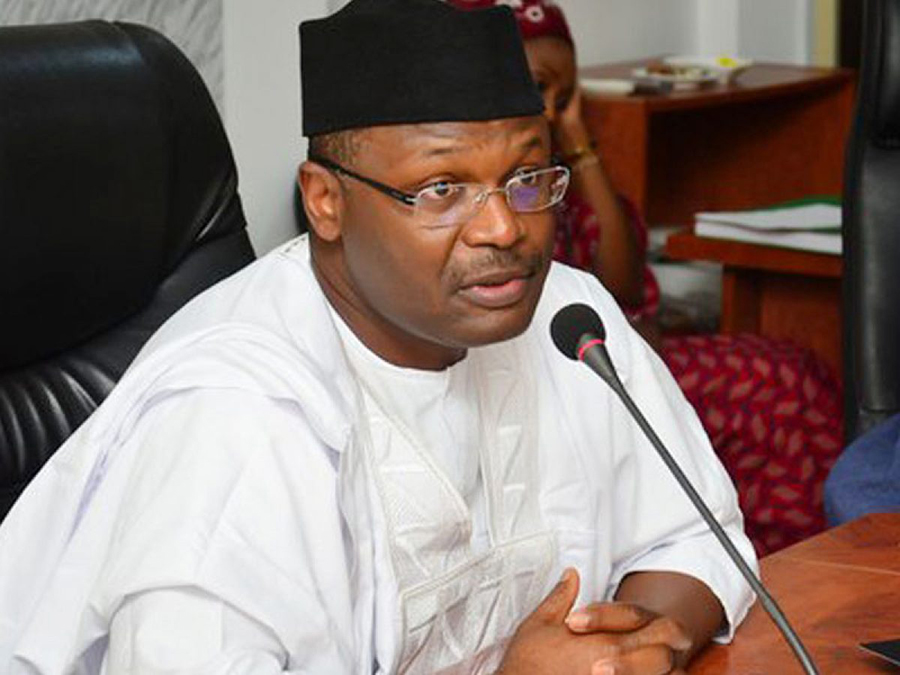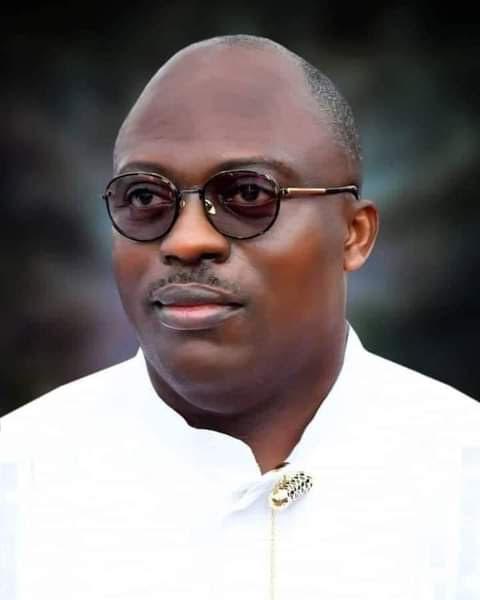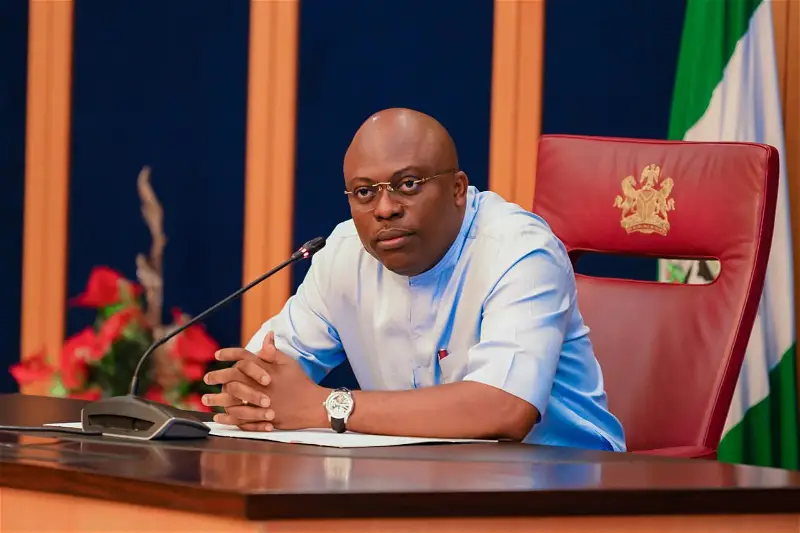Politics
2023: INEC Excludes 124 Parties From Participation

No fewer than 124 political groups that applied for registration as political parties have been technically excluded from participating in the 2023 general elections by the Independent National Electoral Commission, Sunday PUNCH can confirm.
This, by implication, means that only the 18 parties that survived the commission’s last deregistration in 2020 will participate in the forthcoming elections.
It was reported on December 26, 2021, that 101 political associations had applied to the commission for registration. The Deputy Director, SERVICOM at INEC, Olayide Okuonghae, in his response to a Freedom of Information request sent by Sunday PUNCH, said the 101 associations applied between 2019 and December 14, 2021.
READ ALSO: INEC Gives Political Parties Deadline To Conduct Primaries
His response read in part, “In reference to your letter dated December 9, 2021, the commission wishes to inform you that from 2019 to December 14, 2021, a total of 101 political associations forwarded their letters of intent to be registered as political parties.”
Mr Rotimi Oyekanmi, the Chief Press Secretary to the INEC Chairman, Prof Mahmood Yakubu, confirmed the development to one of our correspondents in December, but noted that the commission could not reveal the names of the associations because they had not been approved as political parties.
It was, however, learnt that 23 more political associations applied for registration between December 14, 2021, and March 25, 2022.
An INEC interim report sighted by one of our correspondents showed that as of March 25, 2022, no fewer than 124 applications were received by the commission. However, none of the associations has been registered.
The report read in part, “As of March 2022, the commission had on record a total of 124 letters of intent from various political associations seeking to apply for registration as political parties. The summary of the status of the associations is that 97 associations out of 116 have been advised that their proposed names, acronyms or logos were not suitable or available for registration.
“Eleven of the associations that received letters of non-suitability of their proposed names/acronyms/logos resubmitted letters of intent with amended names/acronyms/logos. Sixteen associations submitted fresh letters of intent.”
Asked whether INEC would still register new political parties before the 2023 elections, Oyekanmi said on Friday that the final decision on whether or not to register a new political party before the elections rested exclusively with the commission, a system he said he would not pre-empt.
He said, “The submission of an application by an association or group for registration as a political party is the starting point of an elaborate and rigorous process. It, therefore, takes time and a lot of effort from when an application is submitted to the day the certificate of registration is given.
READ ALSO: 2023: INEC Clears Air On Extending Deadline For Party Primaries
“Section 75 of the Electoral Act, 2022 says any political association that complies with the provisions of the constitution and the Act for the purposes of registration shall be registered as a political party provided, however, that such an application for registration shall be duly submitted to the commission not later than 12 months before a general election.”
The 2023 General Elections Project Plan launched by INEC last month also projects 18 political parties for next year’s elections.
With June 3, 2022, as INEC’s deadline for political parties to conclude their primaries, it seems clear that no new party will be able to participate in the general elections.
Several calls, SMS and WhatsApp messages sent to the INEC National Commissioner and Chairman of its Information and Voter Education Committee, Festus Okoye, for response were not picked or replied to.
However, a National Commissioner in INEC, who spoke with Sunday PUNCH on condition of anonymity, affirmed that only 18 political parties would partake in the elections.
He said, “Any party that registers now can never be for the 2023 elections because the timetable for the primaries is running already; the primaries must end on June 3, that’s less than a month. So, I don’t see how a party that is registered now will be able to meet up with all of these requirements.
“Don’t forget that they also have to bring the register of their members. So, if they are registered now, when are they going to do all of these?”
Asked to confirm if only 18 political parties would participate in the 2023 elections, he said, “Absolutely, that’s what is going to happen, because the timetable can no longer accommodate them (new members).”
A Resident Electoral Commissioner, who also did not want his name mentioned, said the commission would not reject any valid application for registration, but that its timetable could exclude any new party from participating in certain elections.
He said, “I don’t think INEC is in the position to turn them down. The only thing is whether or not they will be on the ballot. Maybe by the time they finish the process, it will be too late. If party primaries are over before they register as political parties, automatically they are out. Party primaries are to end on June 3, so automatically any political party that is set up after the primaries have been concluded cannot take part in the elections.”
READ ALSO: INEC In Dilemma Over Prosecution Of 1.1million Multiple Registrants
Another source in the commission dismissed any insinuation that INEC delayed in registering the parties to avoid complications in its guidelines and preparations for the 2023 elections.
Prior to the fresh applications, INEC had on February 6, 2020 deregistered 74 political parties due to their poor performance in the 2019 general elections and the re-run elections that followed.
Yakubu said in addition to the extant provision for the registration of political parties, the Fourth Alteration to Section 225(a) of the 1999 Constitution, as amended, empowered the commission to deregister political parties.
Ninety-one political parties participated in the 2019 general elections, while an additional one, the Boot Party, was registered based on the order of a court after the polls.
“Accordingly, 74 political parties are hereby deregistered. With this development, Nigeria now has 18 registered political parties,” Yakubu had said.
He recalled that between 2011 and 2013, INEC deregistered a total of 39 political parties based on the same provision. The Supreme Court, on May 7 upheld an earlier judgment of the Court of Appeal, which okayed the deregistration of the National Unity Party and 73 others. The appeal was filed by the NUP and others.
In the lead judgment delivered by Justice Adamu Jauro, the Supreme Court said the deregistration of the parties was done in line with the laws and in compliance with the extant provisions of the 1999 Constitution and the Electoral Act.
The judgment, delivered by a five-man panel led by Justice Mary Odili, said INEC was empowered by Section 225 (a) of the constitution to de-register any political party that failed to meet the relevant requirements. The apex court then dismissed the parties’ appeal.
However, a staff member of the commission, who did not want his name mentioned, said INEC had the responsibility of registering political parties but that people should also consider joining existing parties.
“Studies show clearly that in any democracy where you have one to three dominant political parties, the moment the elite begin to form more political parties, you are only increasing the chances of those dominant parties, even though they may not be liked by the people,” he stated.
Asked for the solution, he said, “People should join the political parties and not go and form theirs. In the last Osun State governorship election in 2018, there were 25 political parties, whereas 18 participated. If you check, you will find out that the two major parties led the others despite the way people criticised them.”
It’s risky for parties to change congress, primaries’ dates – INEC
Meanwhile, less than four weeks to the deadline for political parties to hold their primaries, INEC has said it is now risky for any party to change the dates of its congresses, conventions and primaries.
Okoye had in a statement a few days ago said that in compliance with Section 82 (1) of the Electoral Act (2022), all the 18 political parties had served the required notices indicating the dates for their conventions, congresses, and primaries for the purpose of nominating candidates for various elective offices as specified in the constitution and the Electoral Act.
Asked if political parties could still change the dates for those exercises, Oyekanmi said on Friday, “It’s not advisable for any political party to change the date of its convention, congress, or primary election at this time. The deadline for the conduct of party primaries for the 2023 general elections is June 3, 2022.
READ ALSO: 2023: INEC Threatens To Bar Political Parties If…
“The Electoral Act, 2022 states that parties must give the commission at least 21 days’ notice. What this means is that political parties have until May 13, 2022 to give the commission a notice. In my opinion, waiting till the last moment to do the needful is always risky.”
PUNCH.
Politics
PDP Reacts To Fubara’s Defection To APC

The Kabiru Turaki-led Peoples Democratic Party (PDP) has reacted to the defection of Rivers State Governor, Siminalayi FubaraGovernor, Siminalayi Fubara, to the ruling All Progressives Congress (APC), describing the move as a “self-inflicted injury” and a culmination of choices the governor “willingly embraced.”
Fubara on Tuesday defected from the PDP to the ruling APC.
He announced his decision during a stakeholders’ meeting held at the Government House in Port Harcourt on Tuesday. Fubara joins several of his colleagues who have also switched to the APC this year.
Recently, 17 members of the House of Assembly, loyal to former Governor Nyesom Wike and led by Speaker Martin Amaewhule, announced their defection from the PDP to the APC, thereby altering the balance of power in the legislature.
READ ALSO:JUST IN: Fubara Dumps PDP For APC
In a statement issued Tuesday night by National Publicity Secretary, Ini Ememobong, the PDP said Fubara’s exit merely affirmed the legal maxim volenti non fit injuria—”to one who is willing, no harm is done.”
According to the PDP, the governor’s political troubles and eventual departure were products of his own decisions.
“Everyone who has followed developments that culminated in this uneventful defection will recall that the Governor willingly travelled the path that took him to this destination,” the statement read.
“Having done so voluntarily, he cannot turn around and accuse our party or any person or group of failing to protect him.”
The party insisted that at every stage of the crisis that engulfed Rivers politics over the past year, civil society groups, democratic actors and Nigerians across political divides stood in Fubara’s defence until he “capitulated.”
READ ALSO:Fubara Names New Rivers SSG
It added that rather than blame others, the governor should acknowledge the support he enjoyed before choosing his new path.
Expressing concern about what it described as Fubara’s political capitulation, the PDP warned against the “Stockholm Syndrome”, a condition in which a victim develops affection for their oppressor—suggesting that the governor may have succumbed to pressures from forces aligned with the Federal Government.
“In all, despite these, we pity the Governor and wish him well,” the party added.
READ ALSO:BREAKING: Gov Fubara Dissolves Rivers Pension Board
The PDP further used the development to highlight what it called the “dysfunctional nature of Nigeria’s democracy,” lamenting a political environment where individuals wield power beyond institutions and allegedly deploy federal might to overwhelm opponents.
It warned that such tendencies threaten democratic stability and should be condemned by all well-meaning Nigerians.
With Fubara’s defection, the opposition party renewed its accusation that the ruling APC is bent on creating a one-party state and shrinking Nigeria’s political space.
“Democracy is under severe attack,” the statement noted, urging Nigerians and the international community to resist what it called a slide toward electoral authoritarianism.
Politics
JUST IN: Fubara Dumps PDP For APC

Governor Siminalayi Fubara of Rivers State has defected to the All Progressives Congress, APC, dumping the Peoples Democratic Party, PDP.
Fubara announced this at a stakeholders meeting at the government house in Port Harcourt.
“We can’t support President (Tinubu) if we don’t fully identify with him, not just backyard support.
“Our decision this evening is that we are moving to the APC,” Fubara said as he announced his defection from the PDP to the APC.
READ ALSO:JUST IN: Tinubu Holds Closed-door Meeting With Rivers, Ebonyi Govs
The development comes amid political tension in the oil rich Niger Delta state.
Recall that President Bola Tinubu on Monday
held confidential discussions the with the Governor.
The engagement, held at the State House in Abuja, came against the backdrop of escalating political friction in Rivers State and ongoing uncertainties regarding Fubara’s standing within the PDP.
Politics
Tinubu, Six APC Governors Hold Closed-door Meeting At Aso Villa

President Bola Ahmed Tinubu on Monday met with six governors elected on the platform of the All Progressives Congress (APC) in a closed-door session at the State House, Abuja.
The purpose of the meeting was not immediately disclosed, and details of its agenda remained unclear at press time.
In attendance were governors Umar Namadi (Jigawa), Monday Okpebholo (Edo), Biodun Oyebanji (Ekiti), Usman Ododo (Kogi,) Aliyu Sokoto (Sokoto) and Dr. Nasir Idris (Kebbi), who arrived at the Presidential Villa separately.
The meeting, held in the President’s office, lasted almost two hours.
Although no Presidency official offered insight into the agenda, the consultations come amid rising security concerns across the country and ongoing political engagements within the ruling party.
The governors declined to speak to journalists after the meeting.
READ ALSO:JUST IN: Navy Officer Who Had Altercation With Wike Reportedly Escapes Assassination Attempt
President Tinubu has recently intensified his focus on national security by convening a series of high-level meetings involving key security stakeholders, including the service chiefs of the Army, Navy, and Air Force, as well as intelligence coordinators and senior officials from various security agencies.
This increased engagement comes in response to a worrying upsurge in banditry, kidnappings, and violent crimes that have spread across multiple regions, causing widespread public concern and escalating pressure on the federal government for urgent and effective intervention.
These strategic meetings, frequently conducted in secrecy to ensure confidentiality and candid discussion, have aimed to undertake a comprehensive review of ongoing security operations nationwide.
Discussions have prioritised enhancing coordination and communication among military, police, and intelligence units to foster a more unified and cohesive response to security challenges.
In addition, the sessions have explored innovative and tactical measures that leverage intelligence gathering, rapid deployment, and community engagement to dismantle criminal networks and restore order.
READ ALSO:JUST IN: Tinubu Holds Closed-door Meeting With Rivers, Ebonyi Govs
Throughout these consultations, President Tinubu has underscored that safeguarding the lives and property of Nigerians is paramount.
He has called on the security apparatus to move beyond reactive measures and adopt more preventive, intelligence-driven strategies that anticipate threats before they escalate.
The administration’s renewed approach signals a commitment to reinforcing national security architecture and improving the operational effectiveness of all agencies involved in the fight against crime and insurgency across Nigeria.
In other news, the National Security Adviser (NSA), Nuhu Ribadu, has expressed optimism that the security challenges – terrorism, banditry, kidnapping, and other violent crime – Nigeria has been facing for almost three decades now will be overcome.
READ ALSO:Tinubu Submits Fresh Ambassadorial List To Senate, Ibas, Dambazau Make Cut
The NSA described those behind the “painful and unnecessary” challenges as “evil” and vowed they would be defeated.
Ribadu made remarks during the opening of a one-day dialogue organised by the National Peace Committee, in partnership with the delegation of the European Union to Nigeria and the U.S., on “a whole-of-Society Approach to the Prevention of Violence and Conflict in Northern Nigeria,” on Thursday in Abuja.
“This (security challenges) also shall pass. We are going through tough times. This will also go.
“But it’s very, very painful, what we are going through. It’s unnecessary.
They are very unfair to us, those who are responsible for this. They are evil.
“But they will be defeated. It’s a matter of time, and peace will be restored. That one we can assure you. Because there are people who are working, not necessarily making noise.
“There are people who are making sacrifices. Every single day, we go to bury our own deaths. Painful as it is. But most people don’t talk. Sacrifice is ongoing,” the NSA said.

 Sports5 days ago
Sports5 days agoJUST IN: Dembélé Named FIFA Best Men’s Player, Bonmatí Wins Women’s Award

 News5 days ago
News5 days agoWage Dispute: Court Orders PSG To Pay Mbappe €61 Million

 Headline5 days ago
Headline5 days agoAircraft Crashes In Owerri With Four Persons Onboard

 Metro3 days ago
Metro3 days agoAlleged Organ Harvesting: Bereaved Families Rush To Check Corpses

 Business5 days ago
Business5 days ago9th FirstBank Digital Xperience Centre Launched In UNIBEN

 News5 days ago
News5 days agoOkpebholo Presents ₦939.85bn ‘Budget Of Hope, Growth’ To Edo Assembly

 Business5 days ago
Business5 days agoCBN Revokes Licences Of Aso Savings, Union Homes As NDIC Begins Deposit Payments

 News4 days ago
News4 days agoForest Reserve: Okpebholo Broker Peace Between Host Communities, Investors

 News5 days ago
News5 days agoTrump Places Nigeria, 14 Others On Partial Travel Restrictions To US

 News3 days ago
News3 days agoPolice Confirm Edo Tanker Explosion, say No Casualty




























